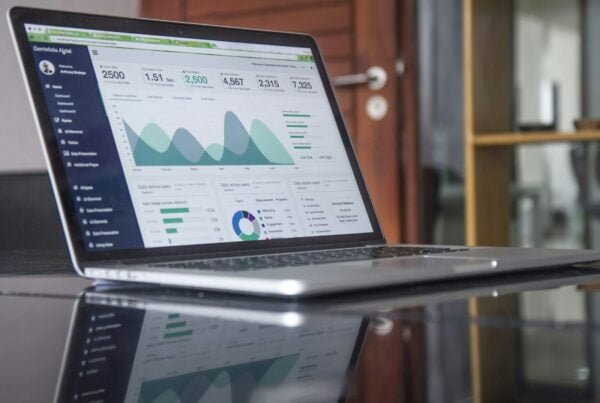Thinking Like a CEO: Adopting the Big Picture Mindset
As a small business owner, it’s easy to get pulled into the daily hustle—answering emails, ordering supplies, helping customers, and juggling a hundred small tasks. While those responsibilities are important, if you stay focused only on the day-to-day, you may never get the chance to build a business that can thrive long-term. That’s where the CEO mindset comes in. Thinking like a CEO means zooming out, seeing the big picture, and deliberately shaping your business’s future.
This perspective is at the heart of our theme: Build, Don’t Just Operate. Let’s break down what it really means to think like a CEO.
What Does a CEO Mindset Look Like?
A CEO mindset is about more than just running operations. It’s about leadership, vision, and building a business that lasts. Here are the core traits:
Vision and Purpose:
CEOs know their why. They have clarity about why their business exists and where they want it to go. For small business owners, this could mean defining a mission that connects with your community or setting a long-term goal like expanding to a second location.
Strategy Over Tactics:
While operators focus on daily tasks, CEOs think in years. They plan for growth, set milestones, and consider how today’s actions support tomorrow’s success.
Delegation:
A true CEO doesn’t try to do everything. They build and empower a team, creating space to focus on the big picture. For entrepreneurs, this might mean training staff to handle customer service so you can focus on business development.
Optimism and Growth:
CEOs approach challenges as opportunities. Instead of saying “we can’t,” they ask “how can we?” That mindset shift can spark creative solutions.
Accountability:
CEOs own their results—both wins and losses. They take responsibility for the business’s direction and set the tone for their team.
Data-Informed Decisions:
While instincts matter, strong CEOs use numbers to guide decisions—whether it’s tracking customer trends, measuring ROI on marketing, or analyzing sales patterns.
Continuous Learning:
Finally, CEOs invest in their own growth. They read, learn from mentors, and adapt. As industries shift, they shift with them.
Shifting from Operator to Builder
Transitioning from a day-to-day operator to a big-picture builder is a journey. It means consciously changing how you see your role:
- From Doer to Delegator: Early on, you wear every hat. But at a certain point, doing it all slows growth. A builder asks, “Who can I trust with this so I can focus on strategy?”
- From Micromanager to Visionary: Instead of controlling every detail, builders focus on outcomes. They give direction, communicate the “why,” and trust their team to deliver.
- From Short-Term to Long-Term: Operators are stuck in the week-to-week. Builders ask, “Where do I want this business in 3, 5, or 10 years?” and plan backward.
- From Business = Me to Business as a System: A business that depends entirely on you will eventually hit a ceiling. Builders create systems, processes, and teams so the company can succeed independently.
- From Gut-Driven to Data-Driven: Instead of relying solely on instinct, builders use data to confirm decisions—whether it’s expanding a product line or adjusting pricing.
This shift doesn’t mean losing touch with the details; it means learning to let go of what holds you back from growth.
Real-World Examples
- Maria Xynias – Ladies Running Errands: Maria approached her business with a CEO mindset from the start. She developed systems, policies, and even thought about franchising early. That planning helped her scale from one small operation to a national franchise.
- Aytekin Tank – JotForm: Aytekin started out coding everything himself. But as his company grew, he shifted into the CEO role—delegating, seeking outside advice, and focusing on steady growth. His ability to think long-term helped JotForm thrive for 20 years.
- Ari Weinzweig – Zingerman’s Deli: Ari learned to step back and stop trying to do everything himself. By letting others lead and asking for help, he turned a single deli into a group of successful businesses with a strong culture.
These stories show that thinking like a CEO isn’t just for large corporations—it’s a mindset that small business owners can apply to achieve growth and sustainability.
Practical Tips to Start Thinking Like a CEO
Ready to make the shift? Here are some simple steps you can start today:
- Block Off CEO Time: Reserve time weekly or monthly for strategy. Step away from operations and focus only on vision and planning.
- Use Simple Frameworks: Try tools like SWOT analysis (strengths, weaknesses, opportunities, threats), the Business Model Canvas, or OKRs (objectives and key results) to structure your thinking.
- Delegate Outcomes, Not Just Tasks: Don’t just tell your team what to do—explain the result you want and let them figure out how to get there.
- Create a Stop-Doing List: Free up energy by dropping or delegating tasks that don’t add value to your growth.
- Stay Market Aware: Regularly check industry trends, talk to customers, and watch what competitors are doing. This helps you anticipate changes.
- Invest in Learning: Read, attend workshops, join peer groups, or work with a mentor. Growth as a leader leads to growth in your business.
Final Thoughts
Adopting a CEO mindset doesn’t mean stepping away from your business—it means stepping up as its leader. When you stop spending all your energy operating and start building, you create a business that’s scalable, sustainable, and set up for long-term success.
So, ask yourself: Are you ready to think like a CEO and build your business for the future?
References
- Here’s What It Takes to Make the Leap From Founder to CEO | Entrepreneur
- The Meaning of Working On Your Business, Not in Your Business | EMyth
- How leaders can focus on the big picture – Businessday NG
- Is CEO a stressful job? – Spain Exchange
- Mindsets and practices of the best CEOs | McKinsey
- Key Traits Of A CEO Mindset – Forbes
- How to Evolve from Operational CEO to Strategic Visionary – The CEO Project
- It’s the CEO Mindset that will Make Your Business Grow | Entrepreneur
- How to Successfully Make the Leap From Founder to CEO | Entrepreneur
- How These Small Business Owners Learned To Let Go | Buffer




